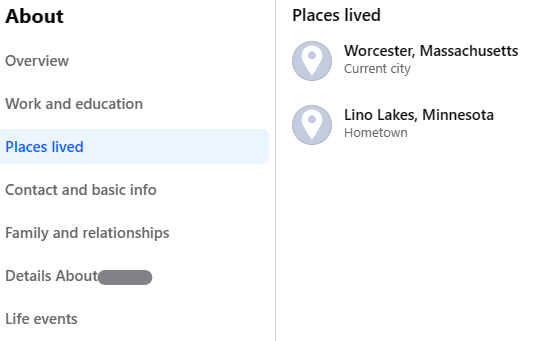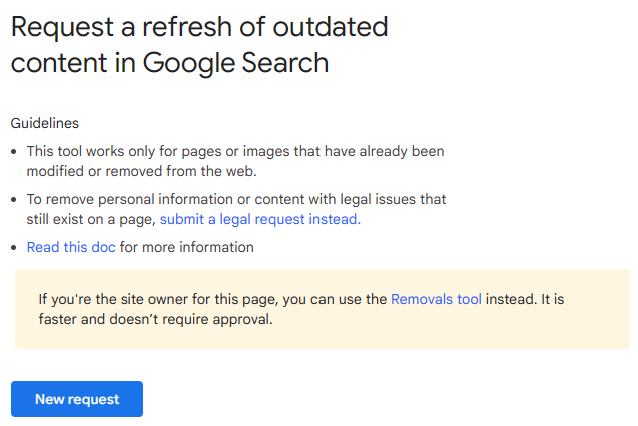Table of Contents
You need to know how to remove your address from the internet.
Family members, close friends, and the mail carrier might feature on a list of people you want to know your home address. Random internet strangers wouldn’t be on that list.
There are very few good reasons why you might want to have your home address appear on the internet, and a whole host of great ones why you might want to keep it private.
Unfortunately, a quick Google search is usually all it takes for people to find private information about you, including your home address.
So, how can you remove your home address from the internet?
Why Is My Address Online?
The main reason your home address shows up on the internet without your permission is that it’s most likely a part of the public record. For example, it might have appeared in a phone book or a publicly accessible document.
Another common reason your address might appear online is that it was put there by a third party after you unknowingly gave it the right to do so.
However, even if a digitally available public record features your address, there’s no reason why it should show up as a Google search result.

While it’s often impossible to remove your personal data, like your home address, from the internet entirely, there are ways to vastly reduce the number of times your address appears in search engine results.
How to Remove Your Address From the Internet
Follow the below steps to remove your address from the internet.
1. Opt-out of people search sites
If you search for “your name” + “address” on a search engine, a data broker site is likely one of the first results.

Data brokers and people search sites are companies that collect your personal information from a variety of sources, combine this information into a comprehensive profile about you, and sell it to (more or less) anyone who wants it.
If your address appears on data collection sites like Whitepages or Spokeo, follow their opt-out instructions to remove your listing from their databases.
By doing so, you will also delete any other personally identifiable information the data broker site might have about you and reduce your digital footprint.
We offer free opt-out guides for most data brokers and people search sites you can follow.
However, opting out can be time-consuming, mostly because each people search site has its own opt-out process. While opting out of some sites is as easy as filling out an online form, other people search and background-check sites may require that you email them.
Additionally, you need to opt out of these sites continuously. As soon as people search sites find more information about you online, they’ll relist your profile.
Alternatively, you can subscribe to a data removal service like DeleteMe. You can also compare and contrast data removal services on our data broker removal service comparison site.
2. Ask website owners to remove your home address
In some cases, your address might appear on a blog or website as part of an article posted without your knowledge. This might even be a scanned version of an old newspaper clipping that appeared online due to a newspaper digitizing and archiving past issues.
To ask a private site owner to remove your home address from their website, you’ll first need to find out who owns or manages the website.
The two most common ways to do this is to:
- See if the site has an “About” section. If it does, does it list who owns or manages it and/or the person’s contact details? If it lists the website owner/manager but not their contact details, see if you can find that person on LinkedIn.
- Perform a Whois search. Whois is a public database of persons who own a domain.
Once you have the site owner’s contact details, you can send them an email asking them to remove your address from the internet.
If you and the site owner live in a country protected by a right to be forgotten law (in Europe, this right is provided by the General Data Protection Regulation or the GDPR), the website has a legal obligation to remove your data.
Unfortunately, in countries like the United States, site owners don’t legally have to delete personal info like home addresses from their websites.
3. Change your online privacy settings
Even if you don’t share your full address on your social media accounts, it’s still possible for someone to figure out exactly where you live based on the information that appears on your social media profiles (including sites like Facebook, LinkedIn, and even Tumblr).
For example, the city or hometown you’ve listed in your “About” section, photos of your kids outside your house, and so on.

This is a great article that explains in detail how a hacker could figure out your address based on what you post on various social media platforms.
The same is true for forums. Depending on how much you share on your online accounts, someone could easily piece together your personal details to guess your address.
To reduce the likelihood of that happening and protect your online presence, manage the privacy settings on each social media site you use (for example, here’s how to lock down your LinkedIn privacy settings) and deactivate any old accounts you no longer need.
4. Remove outdated content from Google Search
Often, content that has been deleted from a webpage will still appear in Google search results.
The reason for that is simple: the site has not yet been cached. Searchers are still seeing results based on the old content that the site hosted last time it was cached.
Go to Google’s “remove outdated content” page to solve this.

You can ask Google to show only the latest version of the website or websites that used to host your home address but don’t anymore.
5. Ask Google to remove your address from Google Search results
Google accepts removal requests for personally identifiable info or doxxing content.
Besides physical addresses, this information also includes sensitive data like credit card numbers, email account addresses, and phone numbers.
You can start your Google removal request here.
Note that this method isn’t foolproof. Even after successfully deleting your address with the help of Google, it will still appear on the original website it was posted on. This is because Google can only remove your address from its search engine, not the actual site it appears on.
6. Practice good cyber hygiene
Practicing good cyber hygiene won’t remove your address from the internet, but it will help you reduce the amount of personal data that leaks online in the first place.
All it takes is for one company that has your information to be breached for your data to end up online.
Consider taking the following steps:
- Storing credentials in a password manager.
- Using a virtual private network (VPN).
- Installing privacy-focused browser extensions like ad blockers.
- Switching to privacy-focused browsers (here’s why Chrome isn’t the best browser for privacy and the truth about Incognito mode).
- Using masked email addresses and phone numbers for online shopping and other activities (DeleteMe offers both to customers).
- Staying on top of data breaches with the Have I Been Pwned tool (it’s not possible to remove sensitive information from the dark web – where most criminals share stolen data – but depending on what data was leaked, it is possible to reduce how much someone could hurt you with it. For instance, in the case of exposed passwords, knowing that they were leaked means you know that you need to change them).
- Changing browser settings to enhance your privacy (here’s how to do so on Apple Safari, Google Chrome, Mozilla Firefox, and Brave).
- Avoiding linking accounts unnecessarily (i.e., “Log in with Facebook/Amazon/etc.)
- Exercising your consumer rights if you can (for example, in California, consumers have specific data privacy laws under the CCPA).
To learn about how companies and websites track you, and what you can do about it, read our guide here.
Now You Know How to Remove Your Address From the Internet
Once you remove your home address from the internet, you should take steps to prevent it from appearing online again.
The most foolproof way to do this is to use a P.O. box (a lockable box usually located in a post office) rather than your actual address for all your correspondence.
But if your address keeps reappearing online, consider subscribing to a service such as DeleteMe, which will scour data brokers and remove personal information from them on your behalf.
Getting yourself off data brokers improves your data privacy and minimizes the risk of identity theft and cybersecurity attacks like phishing scams.
DeleteMe is our premium privacy service that removes you from more than 30 data brokers like Whitepages, Spokeo, BeenVerified, plus many more.
Save 10% on DeleteMe when you use the code BLOG10.
Our privacy advisors:
- Continuously find and remove your sensitive data online
- Stop companies from selling your data – all year long
- Have removed 35M+ records of personal data from the web
Save 10% on any individual and family privacy plan with code: BLOG10












